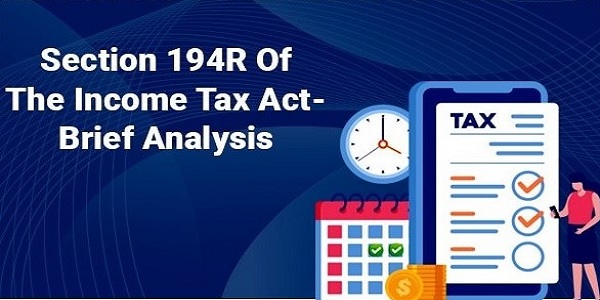Introduction
The Indian taxation landscape is continuously evolving to ensure equitable tax collection. One of the significant updates in Budget 2024 is the introduction of Section 194T, which brings a new dimension to the tax deduction at source (TDS) provisions by including payments made by partnership firms to their partners. This article explores Section 194T in detail, covering its provisions, applicability, implications, and frequently asked questions.
History and Background
Before the introduction of Section 194T, payments made by a partnership firm or a Limited Liability Partnership (LLP) to its partners were exempt from TDS. The income tax framework previously mandated TDS deductions only on payments made to employees, but not on partner-related payments such as salary, remuneration, commission, bonus, or interest. The rationale behind this was that partners are treated as an extension of the firm, and their income is taxed at the firm’s level. However, with the new provision, the government aims to increase tax compliance and ensure that incomes distributed to partners are subjected to TDS.
Key Provisions of Section 194T
1. Payments Covered: Section 194T specifically targets the following types of payments made by a firm to its partners:
- Salary
- Remuneration
- Commission
- Bonus
- Interest (whether on a loan account or on a capital account)
2. Rate of TDS and Limit: The TDS under Section 194T is to be deducted at the rate of 10%. However, this is applicable only when the aggregate payments to a partner exceed ₹20,000 in a financial year.
3. Timing of TDS Deduction: TDS under Section 194T must be deducted at the earlier of the following events:
- Credit of sum/payment to the partner’s account in the firm’s books.
- Actual payment made to the partner.
It’s important to note that credit to the partner’s capital account is also considered when determining the date for TDS deduction.
4. Applicability Date: The provisions of Section 194T are set to take effect from April 1, 2025.
Practical Implications of Section 194T
The introduction of Section 194T is expected to have significant practical implications, especially for family-owned or closely-held firms where partner withdrawals are often ad hoc and based on the firm’s cash flow needs rather than a structured plan.
- Rationalization of Withdrawals: Partners may need to carefully plan their withdrawals to avoid unnecessary TDS deductions. This might require more structured financial planning and regular bookkeeping.
- Impact on Profit-Dependent Remuneration: In firms where partner remuneration is linked to profitability, the requirement to deduct TDS by the financial year-end could necessitate quicker finalization of accounts. This may place additional pressure on firms to complete their financials well before the usual deadlines.
- Cash Flow Management: The need to deposit TDS on partner remuneration within the stipulated timeline might affect the firm’s cash flow, particularly towards the end of the financial year.
Example to Illustrate
Let’s assume a partnership firm XYZ has three partners: A, B, and C. For the financial year 2025-26, the following payments were made:
- Partner A: ₹15,000 as interest on capital
- Partner B: ₹30,000 as salary
- Partner C: ₹25,000 as commission
In this scenario, since the payment to Partner A does not exceed ₹20,000, no TDS will be deducted. However, for Partners B and C, the firm is required to deduct TDS at 10% on ₹30,000 and ₹25,000, respectively.
Frequently Asked Questions (FAQs)
Q1: Is TDS applicable on all types of payments made to a partner by a firm? Yes, under Section 194T, TDS is applicable on salary, remuneration, commission, bonus, and interest payments made by a firm to its partners, provided the aggregate payments exceed ₹20,000 in a financial year.
Q2: What is the rate of TDS under Section 194T? The rate of TDS under Section 194T is 10%.
Q3: From when is Section 194T applicable? Section 194T is applicable from April 1, 2025.
Q4: Does Section 194T apply to the repayment of a partner’s capital account balance? No, TDS under Section 194T does not apply to the repayment of the capital account balance.
Q5: Will TDS be applicable on interest payments made to partners? Yes, interest payments made to partners are subject to TDS under Section 194T.
Q6: How will the credit to a partner’s capital account affect TDS deduction? If a firm credits any sum to a partner’s capital account, it will be considered for determining the timing of TDS deduction under Section 194T.
Quick Summary
- What is Section 194T? A new provision mandating TDS on payments made by partnership firms to their partners.
- Effective Date: April 1, 2025.
- Rate of TDS: 10% on payments exceeding ₹20,000 in a financial year.
- Implications: Partners may need to plan withdrawals more strategically due to TDS deductions.
#Section194T #Budget2024 #IncomeTax #TDS #PartnershipFirms #TaxCompliance #FinancialPlanning #TaxLaw #TDSonPartners #IndianTaxation #canatasha #cainbhopal

